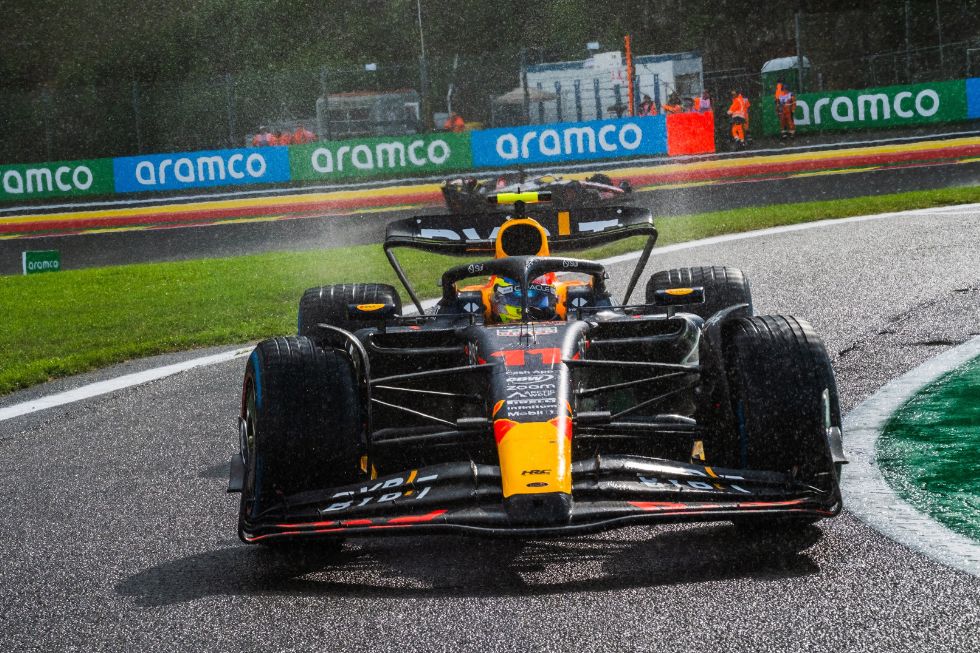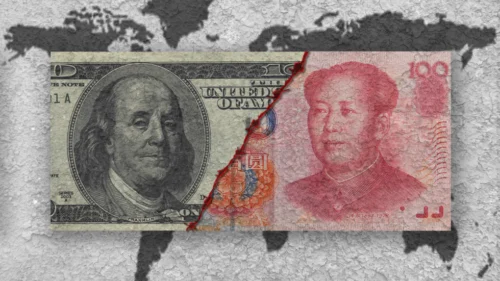In Formula One (F1) racing, slower drivers are expected to move aside when a faster car laps them. But some don’t give way so easily. They might wait for a spot that costs them less time, delay just enough to stay in their rhythm, or even make the faster driver fight harder to get past, throwing them off their pace. A sore loser may still find ways to resist, even when the race is decided.
New research from University of Pennsylvania Wharton School management professor Henning Piezunka explains why some competitors refuse to accept defeat — not just in F1, but in business and politics as well. The study, published in the journal Organization Science, analyzes nearly a decade of F1 races and more than 7,000 “lapping events.” It finds that two key factors — rivalry between racers and the personal advantages a competitor might gain by refusing to back down — play a big role in whether a losing racer actually steps aside.
The study challenges the long-standing belief that lower-ranked competitors will naturally step aside for those above them. In reality, competition does not always stop when the scoreboard says it should.
And this is not only about F1’s high-speed drama. It applies to politics, business and everyday life, where rivalries and strategic moves keep the battle going long after a winner has been declared.
Why some competitors become sore losers
The core issue is, in a nutshell, rivalry. F1 is about long-running battles between drivers who have faced off for years. When the same opponents clash again and again in crucial moments, those fights do not disappear after each race. They build up over time, turning into personal grudges. The result? Resistance from a sore loser.
“The longer the competition has lasted, you really don’t want to give up,” Piezunka explained in an interview with Wharton Business Daily. “Now you really don’t want to defer, because deference means that person is a winner, and I’m a loser.”
The data backs this up. Piezunka’s study, which he penned with scholars Rodolphe Durand and Philipp Reineke, shows that drivers who have had intense battles with each other in the past are much less likely to step aside when being lapped.
For example: A heated rivalry between Max Verstappen (Red Bull Racing) and George Russell (Mercedes-AMG) escalated in 2024 after a clash in Qatar, with Russell accusing Verstappen of threatening behavior. The tension persisted into 2025, with Russell refusing reconciliation and Verstappen criticizing new F1 rules, adding further friction.
This kind of rivalry does not always stay on the track, either. If two drivers are also competing off the track — whether for sponsorships, media attention, or even personal grudges — that tension carries over into the race, making them even more likely to resist giving way.
“We actually compared the search traffic of drivers in online searches,” Piezunka said. “If two drivers did not just compete on the track, but they also competed for attention from an online audience, they were much less likely to defer.”
Sometimes, they’re also thinking about their own race strategy, not just the opponent trying to pass them. A driver might hold up a faster car because letting them through too quickly could hurt their position against another competitor they’re actually racing against. If they’re locked in a tight battle with someone else, giving up too easily could cost them valuable time or points.
Likewise, a driver might refuse to move aside to help a teammate. By slowing down the faster car, they can make things harder for their rival and give their teammate an advantage. Piezunka said, “If the person who gets lapped still has a teammate who’s in the race and who’s doing well, then they are much less likely to defer.”
The same thing happens in politics, business and other high-stakes competitions. Think of a politician who loses an election but refuses to concede, filing legal challenges to keep the fight going. Or a business executive who doesn’t get promoted and then works behind the scenes to make the new leader’s job harder instead of supporting them. In both cases, they’re making a calculated move. Losing one round doesn’t mean they’re giving up the bigger fight.
How managers can maintain the rules of the game
Piezunka’s study’s findings, then, challenge a big assumption: that when someone clearly loses, they’ll accept it and act accordingly. In reality, rivalries do not stop when the contest ends — they continue shaping behavior in ways that rules cannot fully control.
“One way of thinking about managers is that you’re almost like the designer of a competition,” Piezunka said. “These people are competing and you need to make sure that they keep on performing. You don’t benefit from them stopping collaborating. You need to keep the show rolling even if there’s constant winning and losing.”
In F1, this kind of defiance is obvious. Drivers fume over the radio when a slower car won’t move. Team bosses plan ways to slow down rivals. Officials step in with penalties when things go too far.
But outside of racing, the impact is harder to see — and often more damaging. When competitors refuse to accept the rules, when losing doesn’t lead to stepping aside but instead to dragging things out for personal gain, it disrupts the competition itself. The game starts to break down.
For those who value fair play, this study raises a tough question. If rivalry and strategy are strong enough to override the usual expectations of stepping aside, then simply making rules won’t be enough to keep things in order. Managing competition means recognizing that a sore loser won’t always accept the end of a contest.
Piezunka said, “What managers really need to do is work with the winner to make sure they win gracefully, but also with the loser to say, ‘Look, the end of one contest typically is the beginning of the next contest.’”
[Knowledge at Wharton first published this piece.]
The views expressed in this article are the author’s own and do not necessarily reflect Fair Observer’s editorial policy.
Support Fair Observer
We rely on your support for our independence, diversity and quality.
For more than 10 years, Fair Observer has been free, fair and independent. No billionaire owns us, no advertisers control us. We are a reader-supported nonprofit. Unlike many other publications, we keep our content free for readers regardless of where they live or whether they can afford to pay. We have no paywalls and no ads.
In the post-truth era of fake news, echo chambers and filter bubbles, we publish a plurality of perspectives from around the world. Anyone can publish with us, but everyone goes through a rigorous editorial process. So, you get fact-checked, well-reasoned content instead of noise.
We publish 3,000+ voices from 90+ countries. We also conduct education and training programs
on subjects ranging from digital media and journalism to writing and critical thinking. This
doesn’t come cheap. Servers, editors, trainers and web developers cost
money.
Please consider supporting us on a regular basis as a recurring donor or a
sustaining member.
Will you support FO’s journalism?
We rely on your support for our independence, diversity and quality.








Comment